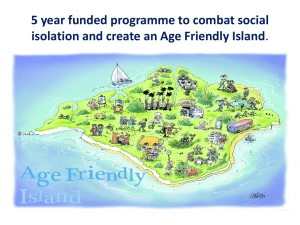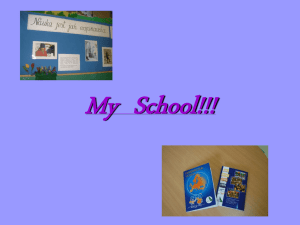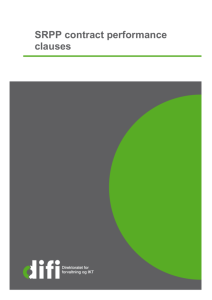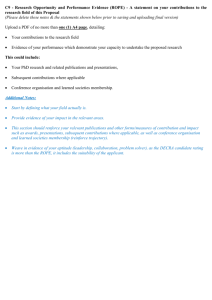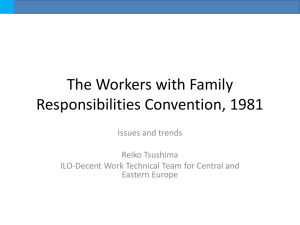DICTIONARY
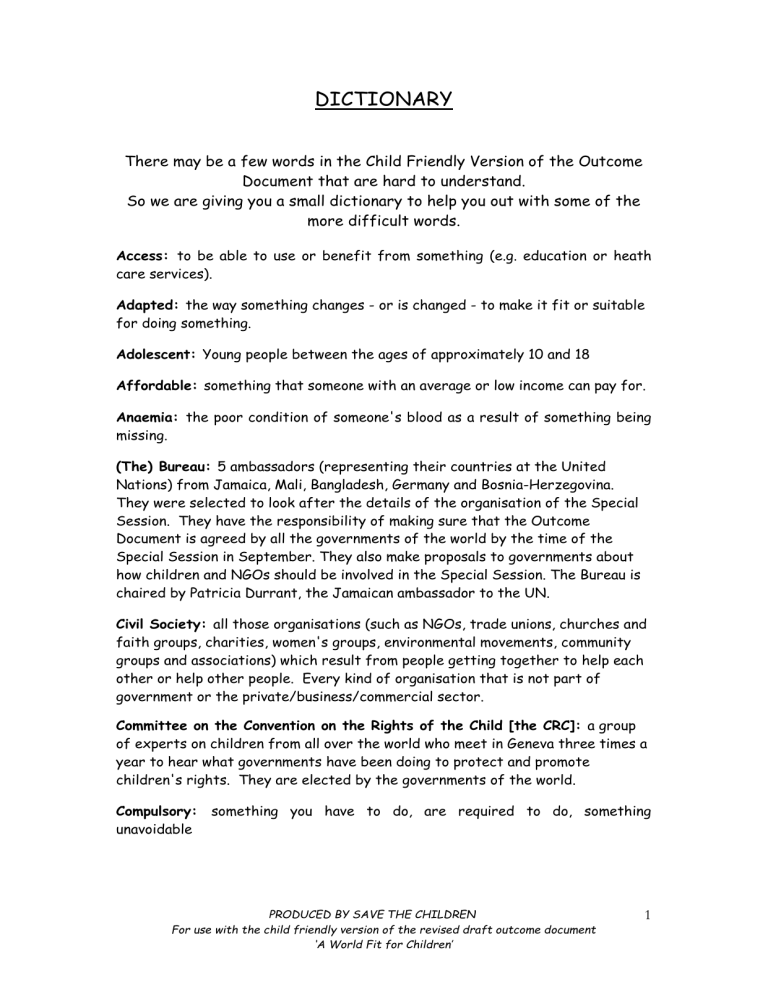
DICTIONARY
There may be a few words in the Child Friendly Version of the Outcome
Document that are hard to understand.
So we are giving you a small dictionary to help you out with some of the more difficult words.
Access: to be able to use or benefit from something (e.g. education or heath care services).
Adapted: the way something changes - or is changed - to make it fit or suitable for doing something.
Adolescent: Young people between the ages of approximately 10 and 18
Affordable: something that someone with an average or low income can pay for.
Anaemia: the poor condition of someone's blood as a result of something being missing.
(The) Bureau: 5 ambassadors (representing their countries at the United
Nations) from Jamaica, Mali, Bangladesh, Germany and Bosnia-Herzegovina.
They were selected to look after the details of the organisation of the Special
Session. They have the responsibility of making sure that the Outcome
Document is agreed by all the governments of the world by the time of the
Special Session in September. They also make proposals to governments about how children and NGOs should be involved in the Special Session. The Bureau is chaired by Patricia Durrant, the Jamaican ambassador to the UN.
Civil Society: all those organisations (such as NGOs, trade unions, churches and faith groups, charities, women's groups, environmental movements, community groups and associations) which result from people getting together to help each other or help other people. Every kind of organisation that is not part of government or the private/business/commercial sector.
Committee on the Convention on the Rights of the Child [the CRC]: a group of experts on children from all over the world who meet in Geneva three times a year to hear what governments have been doing to protect and promote children's rights. They are elected by the governments of the world.
Compulsory: something you have to do, are required to do, something unavoidable
PRODUCED BY SAVE THE CHILDREN
For use with the child friendly version of the revised draft outcome document
‘A World Fit for Children’
1
Compulsory licensing: when a government gives someone permission to produce a drug (or anything else) – because it is considered to be vitally important for that country e.g. in order to save lives - despite the fact that the original maker of that drug does not agree.
Corporal Punishment: causing physical suffering to someone's body by beating, whipping, etc.
Deficiency: a lack of something which results in a problem.
Democracy: a system of government based on free elections involving all adults choosing their elected representatives; also includes respect for freedom of speech, religion and opinion and the respect for the rule of law.
Development: giving people more control over their lives and more choices about how they live. This requires them to have their basic needs satisfied (for example, for food, money and shelter). Also sometimes defined more narrowly as economic growth.
Disabilities: physical (such as lacking part of an arm or leg or having a defective limb, organism or mechanism of the body) or mental problems. But disability also needs to be seen as the disadvantage which results from the way societies are organised which takes little or no account of people who have such difficulties and excludes them from ordinary social life.
Discrimination: the unequal treatment of people because of prejudices or preferences against someone's race, colour, sex, language, religion, political opinion, disability, etc.
Economic growth: an increase in the production of all kinds of goods (such as cars, clothes, food, cooking pots and petrol) and services (such as banks, hospitals, shops, bars, hotels and taxis).
Exploitation: mistreatment, taking advantage of someone, using someone selfishly. As in making a child work to pay off their parent's debts or making them do dangerous or illegal work in order to make someone else better off.
Female Genital Mutilation (FGM): The removal of the sensitive part of a girl's or young woman’s sexual organs for cultural reasons.
Gender: the way in which different cultures and societies understand the biological differences between men and women; what it means to be feminine and masculine in particular cultural and social settings and how this influences ideas about what women and men, girls and boys will do and how they will behave.
PRODUCED BY SAVE THE CHILDREN
For use with the child friendly version of the revised draft outcome document
‘A World Fit for Children’
2
General Assembly: one of the 6 major bodies or parts of the United Nations and the one where most discussions between governments take place. Each government has one vote. A lot of the General Assembly's work goes on in 6 smaller committees. As well as its regular meetings the General Assembly can call Special Sessions to discuss important issues.
Generation: all the people born about the same time or between certain years.
Global community: all the people of the world or all their governments.
HIV/AIDS: Human Immunodeficiency Virus [HIV] is what causes Acquired
Immunodeficiency Syndrome [AIDS] by infecting cells of the body. By causing the breakdown of the body's own system of protection it results in various serious symptoms and diseases which can result in death. HIV infection is spread through unprotected sex (without a condom) or through exposure to blood from injecting drugs into the body (via contaminated needles or syringes).
HIV can also be transmitted from mother to child through birth or by breastfeeding or through blood transfusions.
Hostage taking: when someone is taken away by force and is used as part of a negotiation or other bargaining process by threatening to hurt them (e.g. to get a government to do something).
Hygiene: way of keeping healthy.
Immunisation: protecting people from diseases by giving them a mild but not dangerous form of the disease.
Indigenous: the original or native inhabitants of a place; the people who first lived in a place. Often now in danger from other people who want control over their land or resources.
Instability: when a country is suffering from a bad economic, social, military or political situation which makes it difficult to carry on as normal.
Integration: bring together different groups (for example, children with and without disabilities; children from different races or ethnic groups) so that they are treated equally and enjoy the same use of services, etc.
Intellectual development: the growth of the mind; an increase in understanding, the ability to analyse a problem and other and mental skills
Investments: something you put money into in order to make something happen at a later date (such as investing in a factory to produce cars or investing in children in order to make healthier and well educated adults)
PRODUCED BY SAVE THE CHILDREN
For use with the child friendly version of the revised draft outcome document
‘A World Fit for Children’
3
Iodine: a chemical element that is needed in very small amounts by people to stay healthy. Without iodine people can suffer from an ugly swelling in the neck and/or from problems in their mental development.
International Labour Organisation (ILO): was founded in 1919 to advance social justice and better living conditions throughout the world. In 1946 it became the first specialised agency associated with the United Nations. Its work is agreed by representatives of three groups with equal status: workers' and employers' and governments. Child labour is a key focus of work for the ILO.
ILO Convention 138: States agree to work towards effectively ending child labour. It also says that States will raise the age at which children can start working to an age that is appropriate to the child’s physical and mental development.
ILO Convention 182: The aim of this convention is to stop the worst forms of child labour. The convention clarifies what are the worst forms of child labour and says what governments should do to stop them from happening.
Justice system: all the people and procedures (such as courts, judges, lawyers and prisons) that societies create in order to deal with crime and people who have broken the law.
Law enforcement: people whose job it is to make sure that people obey the law
(such as policemen).
Malnutrition: the result of not getting enough food to maintain a healthy body.
Natural Resources: things that people can use which are provided by nature and which can be found around us (such as oil, coal, fish, diamonds, water and trees).
Negotiations: discussions to agree to or arrange something.
NGO (non-governmental organisation): any organisation which is not part of government (and which is also not a business or company aiming to make a profit) which exists to help people who have some sort of problem (such as poverty or disability) or to protect something (such as animals or plants) which is in danger.
Orphaned: When one or both a child’s parents have died
Participation: being involved in, playing a part in, something. Having your voice heard and being taken seriously - usually when decisions are being taken about something. However, participation can also be 'tokenistic' - meaning that you're not being taken seriously and it's only happening to keep you happy or because it looks nice.
PRODUCED BY SAVE THE CHILDREN
For use with the child friendly version of the revised draft outcome document
‘A World Fit for Children’
4
Physical development: the growth of the human body and its various organs towards a fully developed state.
Poliomyelitis (Polio): a serious disease caused by a virus which often results in physical disability.
Pollution: something that damages or spoils the environment/the natural world
(such as dangerous chemicals, gases or rubbish). Pollution is often dangerous to people's health and to the survival of animals and plants when it gets into the air, water or the ground.
Poverty: the state of having so little resources (such as money or land) that you are unable to get the basic necessities of life (such as food, clothes, and housing) and to join in the life of your local community or society.
Priority: the most important thing or one of the most important things.
Refugees: people who are forced to move from their homes into another country as a result of dangers and/or threats such as war, natural disaster, political persecution, etc.
Sanitation: effective and safe ways of getting rid of human waste that protect people's health.
Secretary General: the head of the United Nations, elected by all the governments of the world. Currently Kofi Annan who was elected in 1997 and who is the UN's seventh Secretary General.
Sexual exploitation: mistreating, abusing and/or taking advantage of someone by involving them in sex work or sexual activity which is illegal or inappropriate.
Social development: the way in which societies evolve and become more complex in order to deal with social issues like health, education, poverty, crime and homelessness.
Standards: a measure of the performance expected in doing something; the level of achievement that needs to be reached in doing something.
Strategies: plans for achieving an agreed goal or objective.
Stunted growth: delays or blocks to the normal physical or mental development of a person.
Technology: industrial or other processes which involve using scientific or other knowledge to solve problems or produce things.
PRODUCED BY SAVE THE CHILDREN
For use with the child friendly version of the revised draft outcome document
‘A World Fit for Children’
5
Terrorism: acts of violence (e.g. attacks, bombings, kidnapping) used by organised groups of people to try and achieve political goals such as a change of government.
Tobacco: a plant from which the leaves are dried and prepared before being used for smoking in cigarettes, pipes or cigars.
Trafficking: illegal trading (that is, buying and selling) in people, especially women and children. Often occurs across the borders of different countries, especially between richer and poorer countries.
UNICEF: the United Nations Children's Fund, originally set up in 1946 as the
UN International Children's Emergency Fund. The main organisation in the
United Nations which works for the protection, survival and development of children. It works closely with governments around the world to provide services to children such as medicines, vaccines, water, food and schooling.
United Nations: created after the Second World War to provide a place for all the countries of the world to discuss problems and deal with issues that affect them all. It has a key role in trying to maintain international peace and security. The United Nations is based in New York and Geneva, but also has offices in other countries.
United Nations Millennium Summit: This was a meeting that took place in
September 2000, with many Heads of State of the member countries of the
UN. At this meeting, the governments said that they would work together to make sure that the Millennium Development Goals would be reached by the year
2015.
Millennium Development Goals: These are 8 goals that the governments agreed to reach by the year 2015. They are:
reducing poverty and hunger
making sure everyone goes to primary school
making sure that boys and girls are treated equally and women are empowered
reducing the number of children that die before their 5 th birthday
improving the health of mothers
reducing the number of people who are affected by HIV/AIDS, malaria and other diseases
making sure that the environment is around for future generations
work together for development
Upholding: supporting something (such as a law or a traditional way of doing something) by actions or behaviour.
PRODUCED BY SAVE THE CHILDREN
For use with the child friendly version of the revised draft outcome document
‘A World Fit for Children’
6
